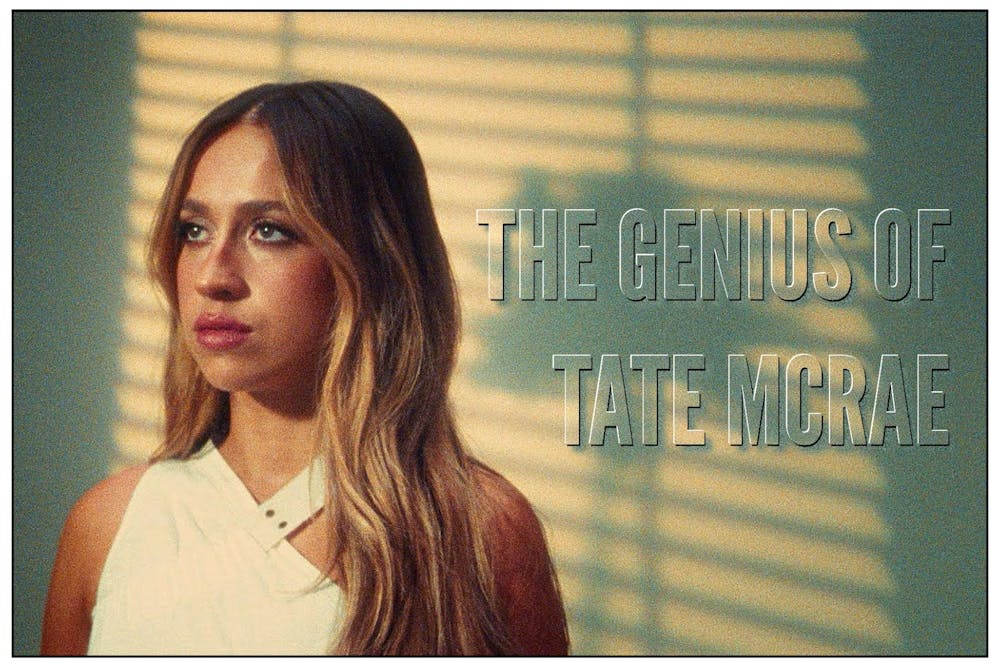Tate McRae is my favorite musical artist — yes, even over Taylor Swift! She has a song for every occasion, so she is constantly playing in the background as I walk to class, driving around with friends and even while studying on floor 10 of Hesburgh Library.
At just 21, she proves to be a genius when it comes to songwriting, performing and singing. She has an incredible range and a unique voice which stands out among “typical” singers. She pairs captivating beats with meaningful lyrics, making you cry or smile based on your current feelings. Tate McRae ensures young women can relate to her as she covers topics ranging from self-discovery and identity to bad boyfriends and to even worse friends. Although I believe much of her music to be valuable, I believe one specific song is especially worth highlighting.
“Plastic Palm Trees” from the album “THINK LATER” is my absolute favorite Tate McRae song. Although it is a slower song and a little different from her upbeat pop music, it proves to be just as good and — in my opinion — better.
It starts with her singing about how her life has changed immensely as she moves from a “deadbeat town” to “parties downtown.” Tate McRae uses these phrases to explain how she has adjusted from a background of insignificance to a new life filled with everything a teenage girl could imagine: elaborate parties, flashy new clothes and fame. She presents this image of a perfect life and worldly successes to the listener.
Later in the song, however, she slowly shifts to reveal to the listener that what appears to be perfect is not as perfect as it may seem to outsiders. Through the lyric “Thought that it was real, thought that it was worth it / Out the window everything was looking perfect” we see Tate McRae regret certain actions and sacrifices that had to be made in order to be viewed as “perfect” to others. Tate wonders if the dreams she achieved have actually resulted in happiness and satisfaction, or if they are now less significant given the struggle and loss along the way.
During these moments, Tate revisits her earlier point about the vapidness of her so-called “perfect” life and begins to compare it to waving palm trees, serving as an image of paradise. Instead of real trees, though, these palm trees are simply a facade — they are cheap, plastic and fake. They serve no other purpose other than to present an image of paradise to anyone who will believe their realness. She connects this imagery to her life by singing, “Something in my head said, ‘I’m sorry you were just looking at plastic palm trees.’” Here, she confesses that things are not as they seem, that she is not perfect and neither is her fame-filled life. Instead, her “paradise” is filled with fakeness, flaws and weakness.
Woven in between catchy melodies, she reveals a valuable lesson by explaining that nothing is ever perfect — we all live with pieces of plastic in our lives. Some, like Tate McRae, are just better at disguising weakness, making it harder to tell the plastic trees from the real ones. She urges us to look past the fake and plastic facade that we put up to make ourselves seem “perfect,” because honestly, none of us are.
Tate McRae’s “Plastic Palm Trees” is a song packed with deep messages about self-searching, finding satisfaction and so much more. She is truly wise beyond her years. Not only do her songs captivate the listener with melodic beats, but her thoughtful lyrics keep us listening. No need for you to take my word for it, though — go listen to some Tate McRae!










